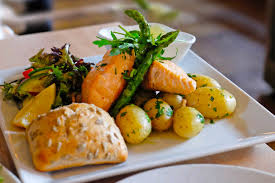Dante’s Gastronomic Universe: A Culinary Journey Through the Divine Comedy

The Slow Food Forlì chapter presents a captivating three-part series commemorating the 700th anniversary of Dante Alighieri’s death. These workshops explore the intersection of food, gastronomy, and culture through the lens of the *Divine Comedy*. Dante’s culinary references, beginning with his condemnation of gluttony, reveal insights into the dining practices of both the poor and the aristocracy of his era, and even shed light on the author’s judgments of certain characters. Alighieri penned his masterpiece during a period of culinary advancement, coinciding with the publication of the *Liber de coquina* around 1304. The increased literary presence of food and its preparation might explain Dante’s inclusion of gastronomic references in his work. The gluttonous are punished in the third circle of Dante’s Inferno, prostrate in mire, their faces pressed to the earth, denied the solace of the heavens. In the sixth cornice of Purgatory, the tormented endure agonizing hunger and thirst, their suffering intensified by the sight of unattainable fruits and pure water. This stark contrast is reversed in Dante’s Paradiso, where physical cravings transform into intellectual and moral aspirations. Hunger symbolizes a noble pursuit of knowledge, a yearning for ethical attainment and the good. These workshops, aligned with the cultural values of the Diego Fabbri Center and the ethical principles of Slow Food, offer a unique perspective.
The first session (“Inferno – Cooked in Blood”), scheduled for June 24th, 2021, at 6:30 PM at Slow Food Forlì (Via Hercolani, 5), explores the serious nature of gluttony in the Christian theology of Dante’s time, focusing on excessive consumption rather than food quality. Overindulgence, particularly in the public sphere, is portrayed as a social transgression. Gluttony, solely focused on personal gratification, disregards environmental impact. Camporesi’s observation, “…now hell is here, affordable for everyone. It’s here in poisoned wines, bloated meats, pesticide-laden produce, and flawless apples without worms…”, illustrates how the “hell of the belly” transcends literary metaphor to become a harsh everyday chemical reality.
The second session (“Purgatory – Nine Things to Sample”), on July 1st, 2021, at 6:30 PM at the same location, explores potential future culinary scenarios, food technology, and Dante’s concepts of fasting and liberation from hunger and gluttony. It contrasts Dante’s uncompromising stance with the hypocritical complicity of contemporary society, where the contradictions of a culture consuming more food than ever before are evident. Now that Western societies are free from the specter of famine and food is readily available, the modern consumer is conflicted, both consuming and condemning, praising with words while criticizing with actions. The modern dining experience reflects this paradox of spiritual atheism, wavering between hedonistic gastronomy and penitential frugality.
The final installment (“Paradise – Bread of Angels”), on July 8th, 2021, at 6:30 PM at the same location, examines the enduring significance and symbolic weight, positive or negative, that food has held throughout human history. This session explores how the greatest poet of all time used food to portray the virtues and vices of humanity. Food becomes the subject of a minor ontological revolution. Every religion approaches food with prayer, reflecting the awe and fear inspired by the alchemy of the kitchen. As Roland Barthes states, food is “a system of communication, a body of images, a protocol of customs, situations, and behaviors.” Lévi-Strauss’s insight that foods are not only “good to eat” but also “good to think” is explored further.
The workshops are held at Slow Food Forlì (Via Hercolani 5 – Forlì). Registration costs €10.00 (€5.00 for Slow Food members), and is free for Artcard holders. To register, please contact info@centrodiegofabbri.it. Romagna a Tavola is responsible only for disseminating information about this event, not for its organization. For further details, please contact the organizers directly. Subscribe to our newsletter!
